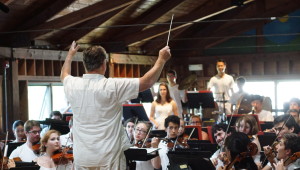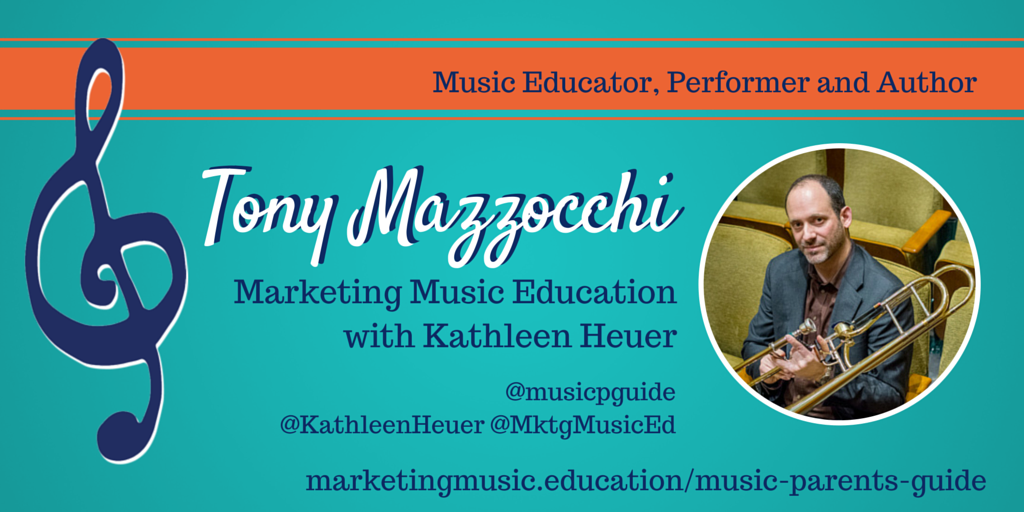 “Public School Cuts Music Programs; Teachers Lose Jobs”
“Public School Cuts Music Programs; Teachers Lose Jobs”
“High School Music Program Slashed”
“Budget Cuts Affect Music and Arts”
We see those headlines in the news all the time.
During every budget cycle, teachers, parents, and music advocates hold their collective breaths hoping cuts will not come down on their programs. This is because music and the arts are often at the top of the “cut list” — but why is this? Board of Education members aren’t necessarily “music haters”, and community members (at least on the surface) don’t want to see music leave the school curriculum. But the cuts keep on coming year after year, and some feel powerless to stop them.
Nevertheless, the cuts are wrong and in many cases are not in the best interest of the systems and the children they serve. When it comes to budget cuts, schools in other countries and great districts in our country do not cut the arts first.
Here are a few of the main reasons why music is cut from school each year, and some thoughts about how they can be avoided:
School leaders are not innovative. Here we are in the 21st century, yet our education system is built on a 19th century model: the idea of academic ability and that the “most useful subjects” that can “get you a job or into college” are at the top of some educational hierarchy. Academic ability — not the capacity for creative thought — still dominates our view of intelligence and therefore our school budget priorities. But as our continued poor academic standing in the world has shown, this way does not work. As far as a creative approach to education is concerned, however, I truly believe the pendulum is about to swing the other way. The age of hyper-standardized testing will soon come to a halt, and there will be a push for more arts instruction in schools. Until that day, we all need to continue to remind school leaders that if they are going to push for innovation in school curricula, they need to put their trust into the arts to fulfill that mission.
School value systems need an overhaul. While some administrators realize music is important, most do not believe it is fundamental to school curriculum. Too many school district leaders are reticent (or feel helpless) to lead the charge toward education reform using the arts as a nucleus. We all seem to be waiting for school districts to redefine what K-12 education should be about, but all that happens is that new tests are created. Meanwhile, we continue to have enormous achievement gaps across racial and socio-economic lines. We define these achievement gaps as academic ability and “college readiness”, which has dominated our view of “intelligence” for quite some time. We have decided that our school system should be a prolonged process of university entrance, and that is what dominates Board of Ed discussions for hours. Meanwhile, most of our children are highly talented, brilliant, creative people who think they’re not, because the thing they are good at school isn’t valued. We can’t afford to go this way, and it is time we insist our school leaders and legislators stop throwing around words like “innovative” and “creative” and instead begin to model that behavior themselves; through creative scheduling and a divorce from standardizing our kids in order to measure their growth.
The music program is weak. As much as it disappoints me to admit, there are ineffective music teachers out there. Math and English can’t be cut, so programs will live on with poor teachers at their helm — but music is different. Bad teaching = students quitting = programs cut. As huge a music advocate as I am, I believe that a bad music program is worse than no music program. There is nothing worse than the bad taste a poor musical experience leaves in everyone’s mouths — administrators’, teachers’, parents’ and students. Keeping a music program alive and well in a school requires a great teacher who builds a community around the program, thereby making it very difficult to cut.
Short-sighted budget “fixes”. Many do not realize that strengthening and improving in-school music programs can actually save money. In my experience, the first administrative quick-fix for budget issues has been reducing or eliminating music programs. However, music classes usually have high student-teacher ratios, so cutting music programs may actually have negative budget implications over the longer term. Basically, a cut to an instrumental music teacher may result in two or more teachers needing to be hired later to provide elective classes with low student-teacher ratios. The cuts end up being short-sighted — and bringing back a music program once it is cut is very rare and incredibly difficult to do.
The intangible and tangible benefits of music education will never appear in the sterile data represented by tests scores. “Right brained”, creative people will be the next leaders and innovators in our country, and public school was created to foster these young brains. Cutting music instruction will negatively affect the creativity of our next generation’s leaders, so now is the time for parents to be arts advocates– not only in our schools, but in our communities and in the press as well. Parents should be aware of local and federal timing issues, such as when school budgets are planned and when elections take place. They should always feel free to contact the media in thoughtful response to budget cuts to the arts and follow up with timely letters to administrators with thoughts and concerns.
Music is one of the most impressive and beautiful achievements of the human race and deserves a permanent place in education. The intellectual growth and happiness of our children depend on it.








Elementary music programs aren’t mandated in NYS, so they can be cut before mandated programs.
This is true. It’s also true that all instrumental music programs are not state mandated, so it’s really up to the school and community to place value on what they think is best for the children they serve. If we had schools with nothing but state mandated classes, we would have bona fide test prep centers. That said, after state mandates are taken care of, there is room for electives and other subjects — that’s where music advocacy rings strongest.
Hey, I was hoping to quote a few lines you wrote for a research paper in writing. However the wording is kind of weird here: “…the thing they are good at school isn’t valued.”
Could you clarify it at all? Thanks
Allison, what I was basically implying is that musical and creative talent is not quantifiable and therefore not on a state report card. If it is not rewarded by the state, principals are less likely to afford students the opportunity to pursue it in depth in school and put money towards expanding programming.
Hello! I am writing a research paper on why I believe music programs should remain in schools because of the effects it has on brain function and overall executive brain function. Is there any kind of source you can point me toward? This post was great, so I’d like to look at where you got this information if you can get the time. Thanks!
So am I but I am an elementary student
Me too, but I am writing it for my AP language and composition class. It’s half of our grade! Junior in high school writing for a college class.
This is weird. I am writing a paper on the exact same thing and I am also Emily… Nice to meet you.
im am to but i want to make music mandatory
i second that
Did you do your research paper? May I access it?
Look in articles wrote by Associated board of music. They do a magazine called Libretto and cover lots of subjects. I once read one that just focused on the mental skills music learns you and the skills it then allows you to adopt.
Hello my name is Sarah and I was wondering if you can give me sort of a pointer at which paragraph could help me in my opinion paragraph. My opinion is the arts program is very important to a child’s education. Plus up in Ontario, Canada we have 6 high schools and one of them is all about the music.
Hello and thank you for writing this article! I too, hope that the music and shop programs will become recognized for what they can do for kids and not seen as a negative. You did say that you think the pendulum is starting to swing the other way. As it has been nearly 3 years, are you seeing more enthusiasm building for these programs?
Hard to believe it has been over 3 years since I wrote this!
Although I do not see as much evidence of schools embracing the arts and creative subjects, I am seeing in how states and local authorities see standardized testing (see the slow dismantling of PARCC). So, perhaps I am being hopeful, but that is a step in the right direction and will help scheduling be more geared to what children need, rather than to appease legislators.
Because all those other things are RELEVANT to life in the 21st century.
Ask yourself these questions : when was the last time you or anyone you know downloaded and listened to, for their enjoyment, a piece of music performed by a concert band? How many professional concert bands exist in the US today? How many people are interested in marching band music? How many people attend school band performances that aren’t related to band members?
The music education system is based on a model that has been socially irrelevant for at least half a century. That, and the evidence that claims that kids who participate in music do better in math, reading, whatever, is all correlation; there has never been evidence of causation, because there is none.
I’m speaking as a lifelong musician, and a music teacher of 25+ years. Music changes, but music education clings to its ancient roots. Every year, I have more students wanting to take beginning guitar lab than I have in band. That’s because it’s relevant to them, and the parents see it as relevant. I think about how much money had been dumped into teaching kids band and orchestra instruments who no longer play, or will never play again after high school. And for a fraction of the cost, many of the kids taking guitar will play for the rest of their life.
Expensive and irrelevant will always lose to affordable and pertinent. That’s the way it is.